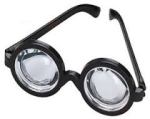 The FBI noted recently that it paid more than $1 million to hack the security system on an IPhone, as reported by Reuters, but that nothing of significance it sought was found there. Whether to believe the report of the cost, and that nothing of significance toward its investigation was found are both doubtful, but that’s just me being me, perhaps, on a Friday.
The FBI noted recently that it paid more than $1 million to hack the security system on an IPhone, as reported by Reuters, but that nothing of significance it sought was found there. Whether to believe the report of the cost, and that nothing of significance toward its investigation was found are both doubtful, but that’s just me being me, perhaps, on a Friday.
A passcode worth more than a $1 million is something else to know. My phone just got a whole lot more valuable to me. Thanks!




